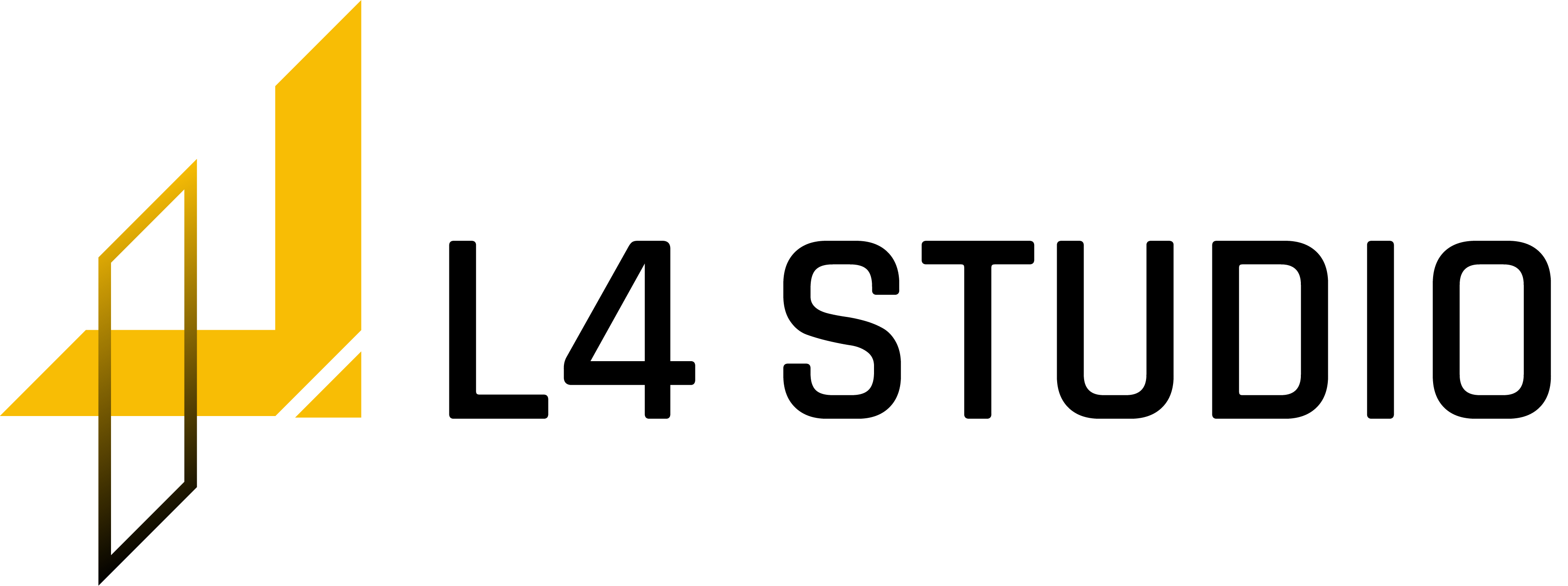
WHICH CROSS-PLATFORM IS BEST FOR MOBILE DEVELOPMENT SOFTWARE?
Mobile development continues to grow rapidly, and developers need to find the best cross-platform tool for them. Every marketer knows that the more people you can reach, the more sales and customers you can have. So, that’s why we have cross-platform in the mobile world. With the help of mobile development software, you can have apps that can be used on both popular mobile platforms nowadays are Android and IOS. In this blog post, we’ll explore the answer to “Which Cross-Platform Is Best For Mobile Development Software?” to help you make an informed decision about which is best suited for your needs.
1. What is cross-platform mobile development?
For mobile development software, cross-platform mobile development offers numerous benefits. First, it allows you to reuse a considerable amount of code, which saves you time and effort. This reduces the cost of production while also speeding it up. For you, as a company, less time spent on development equates to a faster release and, as a result, faster revenues. Furthermore, instead of publishing many native apps, they can save money on marketing by releasing a single cross-platform software.
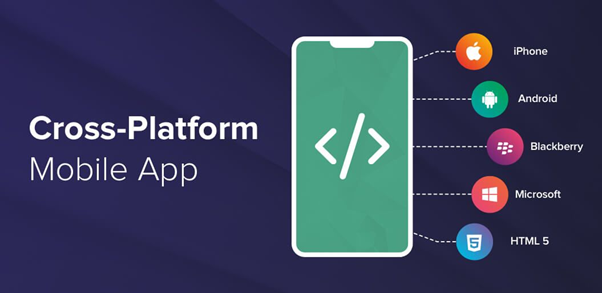
Figure 1. Cross-platform mobile development is about one code that can use on multiple platforms
It is now easier for programmers to create cross-platform apps. Some of the more recent approaches to cross-platform development are discussed:
- Hybrid mobile app development: Developers create a hybrid mobile app by writing the app’s core in HTML5 or JavaScript and then wrapping it in a native device wrapper.
- Rapid mobile app development (RMAD): these are the programming tools that do not require code used by developers. RMAD allows business users to swiftly create and manage “good-enough” internal apps to solve specific business problems.
- Progressive web apps (PWAs): Websites that have the appearance and functionality of mobile apps. PWAs are designed to take advantage of native mobile device functionality without requiring the end-user to go to an app store, buy something, and then download it locally.
2. Which is the best cross-platform for mobile development?
2.1 React native
React Native is a framework for building native apps that employs JavaScript as its programming language. React Native has the advantage of allowing you to develop modules in languages like C, Swift, and Java.
The best aspect of this tool is working on picture editing and video processing that isn’t achievable with other API frameworks.
React Native is a high-performance module system that lets you build Android and iOS. React’s JavaScriptX syntax makes it easy to use without sacrificing performance or control over how your app looks in terms of native widgets – there’s no need to go through HTML+CSS polyfill techniques!
You can combine the best features from JS with some of those seen on mobile devices by using this framework designed specifically around reusable modules (aka components).
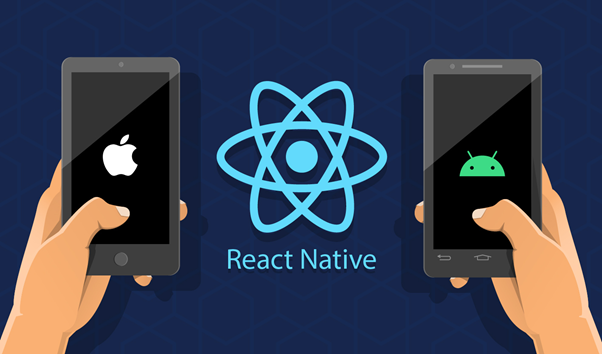
Figure 2. React native can use for both IOS and Android devices
React Native apps are a tremendous hit with businesses and have become mobile development software’s favorite tools. Facebook and Instagram, two of the most popular apps on the planet, used React Mobile to create their native apps. Not only that, React Native is unquestionably the most refined cross-platform app development platform since it quickly understands your source code and turns it into native elements.
As a result, you can rely on React Native. ReactNative was originally developed at Facebook, so we know what works well across all platforms. Try this platform for yourself and test out the versatility!
Pros Of React Native
- Shorter device-to-market time
- Effective with the budget
- Easy to use across different platforms
- Diverse ecosystem
- Makes sure the app has decent growth
- Smooth integration
- Low cost for app development
- Lots of tools to help with the process
Cons Of React Native
- Difficult to start from the basics
- Needs upgrade
- It cannot be debugged easily due to Javascript, Objective-C, Java, and C / C ++ application
- Needs a link between native and Javascript.
- It can be slow and heavy to the system.
- Requires efficiency in both web technologies and native technologies
2.2 Xamarin
With Microsoft Visual Studio Xamarin, you can create apps for many platforms, including Windows, iOS, and Android, using a single.net codebase.
The most significant aspect of the Xamarin cross-platform tool is that all of the apps created with its look and feel like native apps because it leverages native interfaces that behave the way a user expects them to.
You may offer your app a platform-specific hardware boost using Xamarin mobile app development to achieve performance similar to native apps. Also, regardless of the platform on which you’re building your mobile app, around 75% of your coding will be the same. Xamarin identifies a single piece of code and speeds up the construction of cross-platform mobile apps.
2.3 Flutter
Flutter is a software development kit (SDK) that lets you create high-performance apps for iOS, Android, the web, and desktop using a single codebase. Enough to make it a viable option for cross-platform mobile app development in businesses. This open-source UI SDK was created by Google and was first released in May 2017.
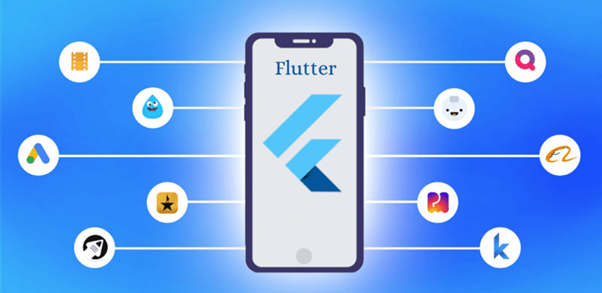
Figure 3. Flutter has a huge potential because it can work on so many platforms
It employs the Dart programming language, which is simple to grasp for JavaScript or Java developers and aids in the implementation of most object-oriented concepts. Flutter app development, on the other hand, will meet your cross-platform goals if you want to create a custom app for iOS and Android platforms.
Despite that Flutter is just a new tech trend in cross-platform mobile, but it attracted many mobile development software companies around the globe.
Flutter’s hot reload feature saves us all from the burden of installing third-party plugins into our computers to fix errors stemming from missing libraries like moment/ Lodash etc. All changes are automatically reflected inside the IDE itself, which saves time fixing bugs without sacrificing anything else – such as performance since everything happens instantly!
Pros Of Flutter
- It takes no expert and nearly no time to work with
- Hot reload
- Customizable
- It takes less time to test
- Native app-level of efficiency
Cons Of Flutter
- Immature framework
- Not enough advanced features
- Not stable enough
2.4. Node.JS
Node.JS is cross-platform mobile development software that helps develop scalable, server-side network applications by transforming JavaScript into a general-purpose language from a highly specialized one.
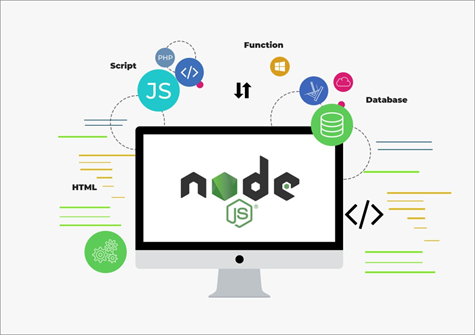
Figure 3. Node.JS.
The engine compiles code to machine level rather than executing it as a bytecode which makes its speed much faster and also comes with rich library modules for handling many connections at once. This makes Node JS an ideal choice among developers looking for solutions to build better web apps!
Pros Of Node.JS
- Large community for sharing experiences
- The fastest interpreters for dynamic language in the current market
- Dramatically reduce waiting time
- Single-threaded operational model
Cons Of Node.JS
- Zero scalability
- Not great at processing relational data.
- Every time using a callback ends up with tons of nested callbacks.
- If someone starts Node without first digging into JavaScript, he may run into conceptual issues.
- CPU-intensive tasks are not recommended. Only suitable for I/O tasks (like web servers).
Summary
But we have to notice that choosing a cross-platform mobile app development service will not do any good unless you choose the right tool. And you should find a good mobile development software provider to have the best result.
Sources: Internet
——————————
L4 STUDIO – LEADING SOFTWARE DEVELOPMENT COMPANY IN VIETNAM
Website: https://l4studio.net/
Email: hi@l4studio.net
Phone: (+84) 28 6675 6685
Our Mobile Development Software Services: https://l4studio.net/mobile-app-development/
For more interesting blogs: https://l4studio.net/it-knowledge/
Follow us at: https://www.facebook.com/L4Studiovn/
Read more: WHAT IS NEEDED FOR MOBILE APPLICATION DEVELOPMENT IN HO CHI MINH CITY?
